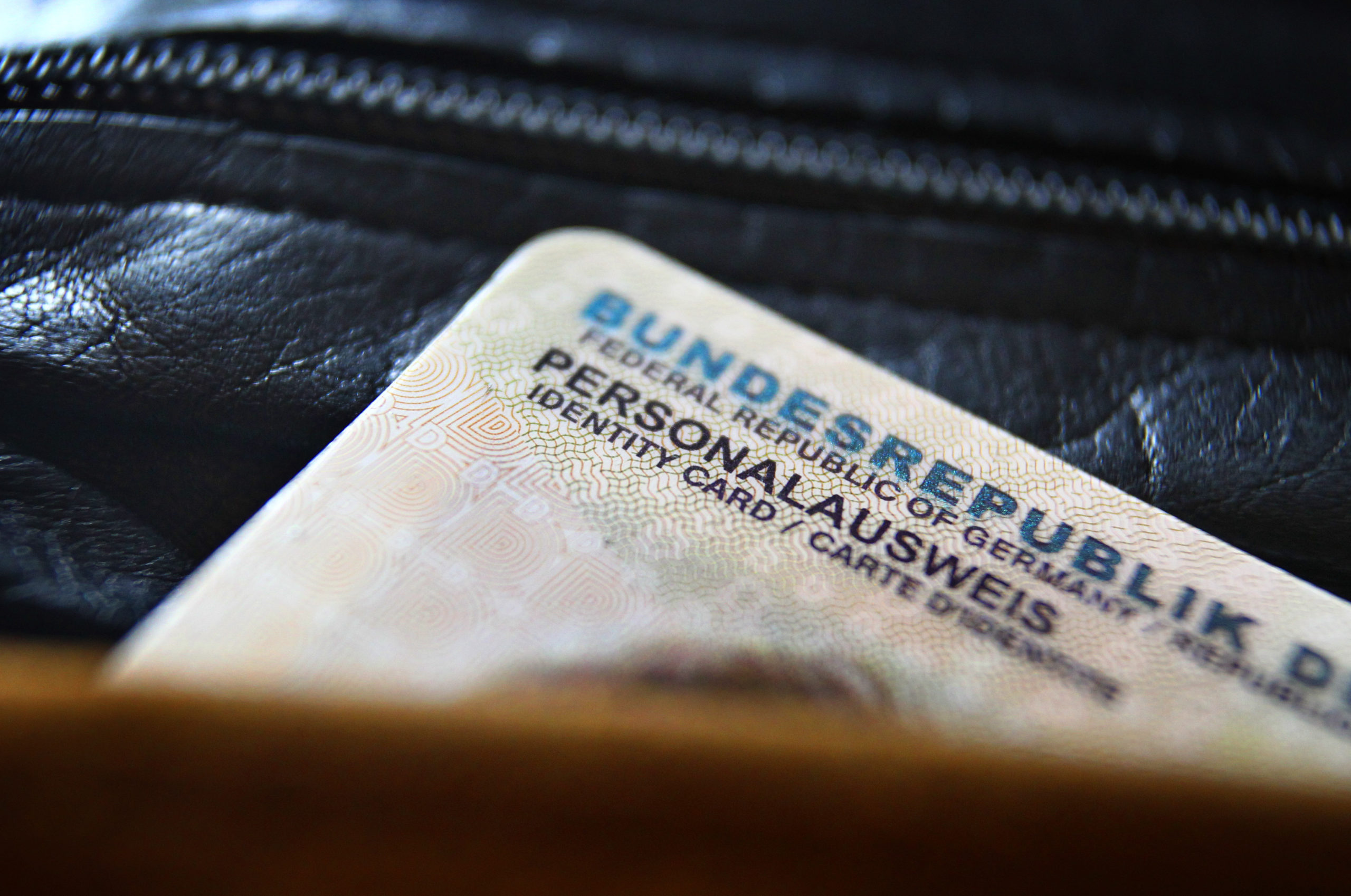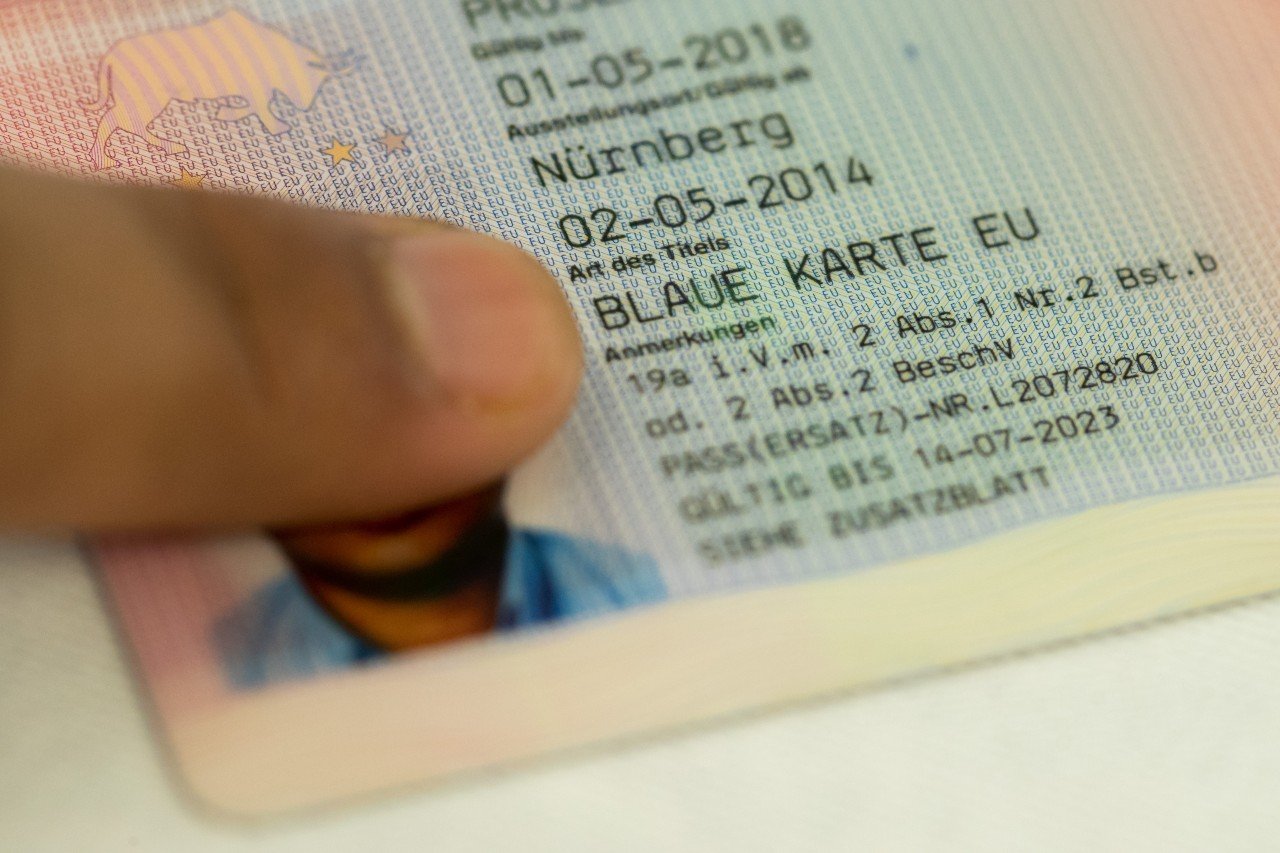Emergency alerts to be available on all phones
Since February 2023, cell phones in Germany have been able to receive emergency warnings via the general mobile phone network. As was tested on the last ‘Warntag’, they would beep loudly with an ear-piercing alert and text message, even if set to silent and without any sort of special warning.
But starting November 1st, the broadcast channel 919 will also be available, which can also be received on older devices. However, these messages will be broadcast purely in German, unlike with newer phones which can translate to the user’s preferred language. The alert function will also need to be set up manually.
READ ALSO: New disaster warning system rolled out across Germany
No more signatures to collect IDs
A new law coming into force on November 1st will change the way ID cards or passports are applied for, as part of Germany’s push to improve digitalisation (yes, you read that right).
From November, German residents will be able to confirm receipt of a special letter (the “Pin-Brief”), which lets you know your requested ID card, be it a passport or residence permit, is being printed. Previously, a physical signature was required in order to collect these IDs. Although you still have to pick up the ID in person, you no longer need a separate appointment, which sometimes comes with a notoriously long waiting time.
Instead, you can pick up your ID card around the clock using a code at an issuing machine.

MDR discontinues long-running TV programme
Since 1998, the German public broadcaster’s programme “Hauptsache Gesund” (Main Thing Health) has flickered across the screen every Thursday evening. However, it will be broadcast for the last time on November 30th, because a change in ARD’s programme portfolio means there is no longer room for the health magazine. For the time being, its place could be taken by the NDR programme “Visite”, which focuses on similar topics.
READ ALSO: 10 must-see films and series to help you improve your German
Spanish fashion chain “Stradivarius” comes to Germany
Calling all fashionistas: instead of only being able to shop online at the popular Spanish clothes store, you will also be able to physically browse through the group’s clothes – at least in Dresden. There, an 890 square metre fashion temple is to open its doors in the Centrum-Galerie. A shop is also planned for next year in the Westfield Hamburg-Überseequartier. Other well-known brands of the Intidex Group, to which Stradivarius belongs, include Zara, Bershka, Massimo Dutti and Pull & Bear.
Secure (a) tax advantage
If you want to benefit from your tax refund earlier, you can apply for the so-called wage tax reduction (Lohnsteuerermäßigung). In principle, this is possible at any time, but if you want the application to apply retroactively for the entire year 2023, it must be submitted to the tax office by November 30th. You will then have more net income in November and December.
You can also apply directly for the income tax reduction for 2024. If you meet the requirements, you will already pay less tax month by month during the year and do not have to wait for the refund after filing your income tax return.
The tax office grants an allowance for income-related expenses if the total deductible expenses exceed €1,830 in 2023.
READ ALSO: EXPLAINED: The top tax deductions often overlooked by employees in Germany
The first part of Germany’s Skilled Worker Law to come into effect
In the first stage of Germany’s new law making it easier for skilled workers to come to the Bundesrepublik, both those with qualified vocational training or an academic degree can seek employment, unlike what was previously the case. In concrete terms, this means that the content of the professional or university degree no longer has to match the planned employment.
People who hold a Blue Card from another EU country will be able to come to Germany for up to 90 days on work-related trips without needing a visa. In addition, people who’ve been living in another EU country on a Blue Card for at least a year will be able to live and work in Germany long-term without needing a visa.
The salary threshold to receive a Blue Card in the first place will also be lowered dramatically.
READ ALSO: How Germany’s immigration rules are changing this November

Compare car and change car insurance by the end of November
You can still cancel and/or change your existing car insurance until the end of November. “Changing insurance is already worthwhile if the number of drivers has changed or you have bought a new car,” writes the ADAC, Germany’s largest car insurance association.
But at the same time, the German Automobile Club warned consumers to go through new insurance offers with a fine-tooth comb, as supposedly better deals often don’t include certain claims.
READ ALSO: Why is German car insurance getting more expensive?
Motor vehicle sector trainees to receive more money
From November 2023, Auzubis (trainees) in the motor vehicle trade will receive five per cent more money per month. That is about €70 more per month for trainees.
In many countries, a university degree is the most sure-fire way to enter into a profession. But the German ‘Ausbildung’ system allows aspiring workers – including those who hail from another country – to gain hands-on experience in a company while also receiving training at an official institute.
Streaming service prices rising
The subscription prices of the streaming provider Disney+ are going up in Germany. From November, consumers can choose between three options: Premium (€11.99 per month), Standard (€8.99) and Standard with advertising (€5.99). Until October 31st, a subscription – comparable to the premium model – has cost €8.99 a month or €89.90 a year.
Good deal days
Germany may not offer the same retail rebate madness as in the USA but there are still several opportunities to snag a good deal in November. Whether “Singles Day” on November 11th, “Black Friday” on November 24th or “Cyber Monday” on November 27th, online shops and brick-and-mortar retailers are once again tempting customers with discount campaigns. Some stores have even announced an entire “Black Friday” week starting on November 20th.




 Please whitelist us to continue reading.
Please whitelist us to continue reading.
Little note on the Disney+ changes: they only have two plans until November 1st, after which they’ll have three plans. They also don’t currently allow you to change from premium to standard (if that’s the two plans they have)
Source: Disney+ support person I just had a conversation with.